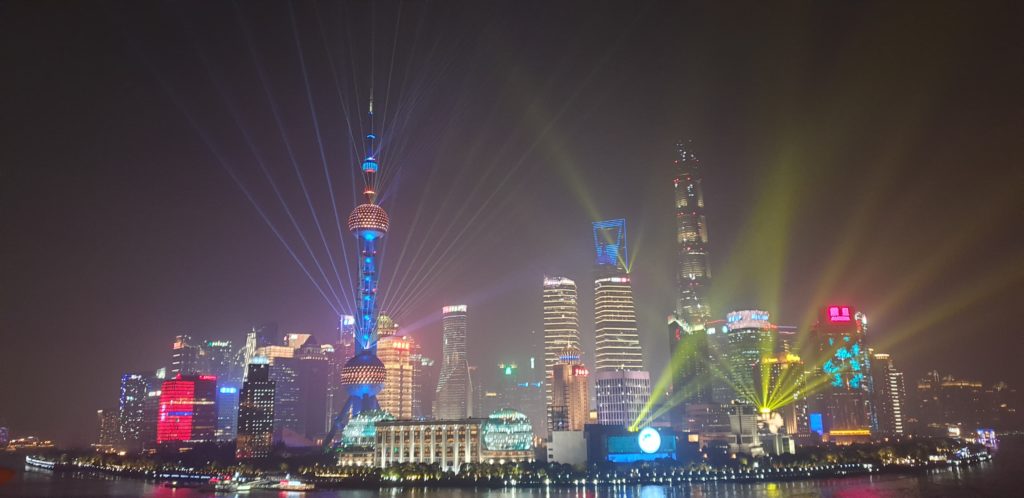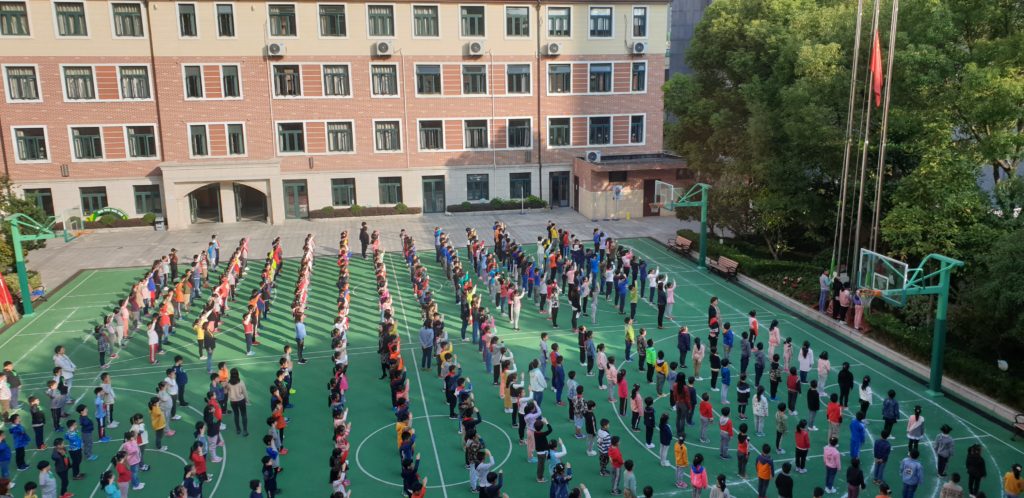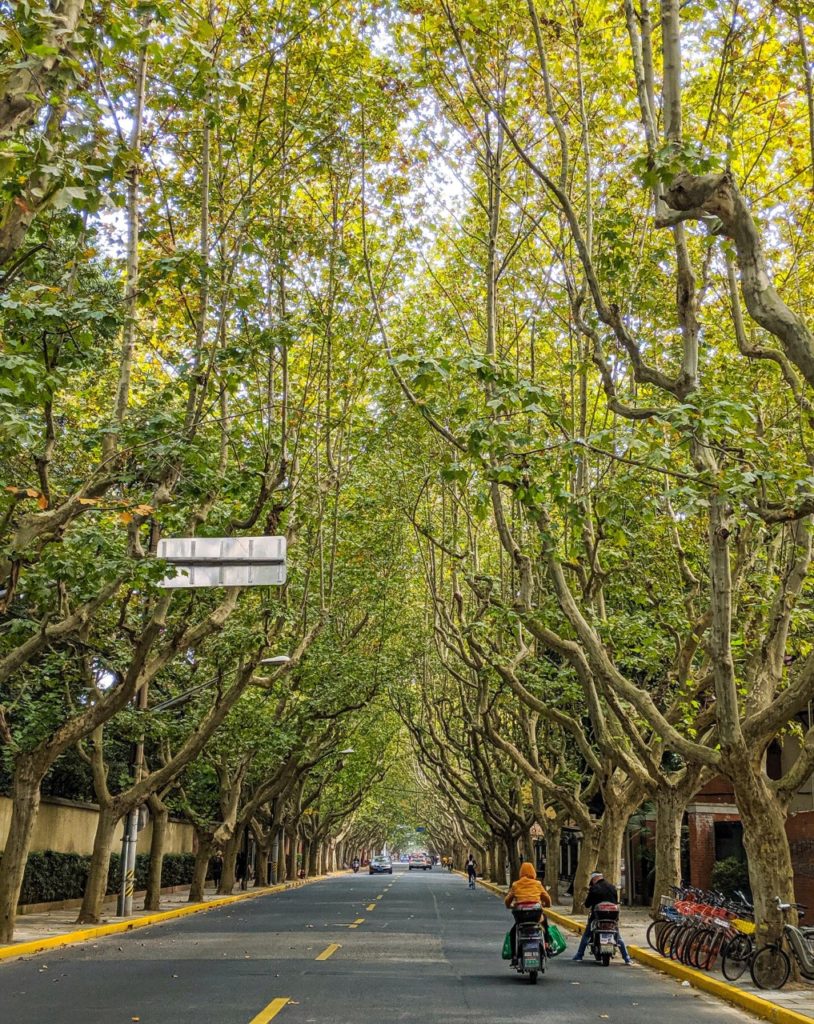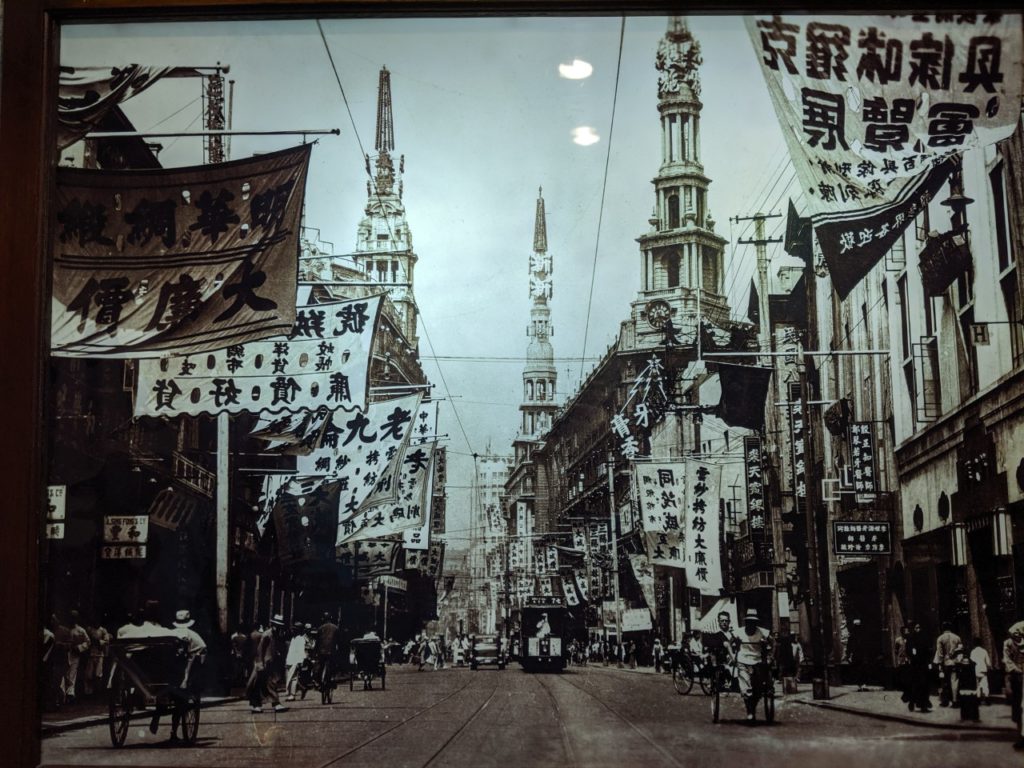
Back in May 2014, in the second most recent entry to this ever-prolific blog, I published an article that may have been a tiny bit negative about Shanghai and its residents.
I suggested that the city populace lacked even the most basic social graces; that walking down the street required the dodging a near-constant tsunami of saliva; that even if you avoided the spit then you would almost certainly be mown down by a reckless motorist (or at least deafened by the ever-present fanfare of car horns); that to be white in Shanghai is to be gawked at like a Victorian circus freak and, finally that the Shanghaiese had bulldozed much of the city’s rich history in a relentless stampede towards modernity and money.
Well, I revisited the city last month and so it’s time to revisit those opinions.
We hear much about the breakneck rate of development of China but it’s something else to witness the change firsthand. The cashless society has well and truly arrived – during our stay, we were the only people I saw pay for anything with paper money. Everyone else uses Wei Chat (an all-purpose social media app, communications hub and payments platform) or Alipay (the Chinese version of PayPal) via their phones.
Incredibly this even included an elderly lady – to all intents a destitute – who appeared at our restaurant table one night, desperately pleading with us to buy one of her flowers to try and raise a few cents. No chance of getting away with the old pat-of-the-pockets-shrug-of-the shoulders-sorry-I-haven’t-got-any-change routine as she accepted payment by Ali Pay. So we told her to fuck off instead.
But more impressive than the technical advances are the changes in behaviour: spitting, for example, has both metaphorically and literally dried up. The traditional soundtrack to Shanghaiese life – hawking Chinese on the vocals with accompanying horn section courtesy of gridlocked traffic has fallen silent.
A ban on horns within the city centre is largely respected but that”s not to say that there has been an accompanying improvement in driving standards. Just that the regular traffic atrocities are now carried out in silence. Traffic lights are still considered at best advisory and there are regular near misses involving the constant flow of electric scooters but, overall, the feel is of an organised, efficient chaos.
Patriotism is a concept that manifests itself in a variety of ways. At best it can be a joyous and inclusive celebration of national identity, at worst a poisonous bigotry. A sliding scale from St Patrick’s Day to Donald Trump.

And the Chinese are nothing if not patriotic, something that is ingrained into them from a young age as we were able to witness first-hand. Presumably with an eye on the paedophile market, our hotel room had been positioned overlooking the playground of the local junior school. From memory, my mornings before school were spent milling around the playground or hurriedly finishing homework that had to be in that day. For the Chinese student, the school day starts at 7.30 with exercises followed by marching around the playground, the forming of perfectly straight lines and saluting the Chinese flag whilst singing the national anthem. Whether you think this is a positive reinforcement of national identity or the creepy brainwashing of impressionable young children almost certainly depends on whether you are Chinese or not.
It can be difficult to understand the Chinese mindset from a western perspective. We fret (rightly) about the treatment of the Uighurs in Xinjiang and the protestors in Hong Kong and, more broadly, about the suppression of personal freedoms but for most Chinese these issues just doesn’t cut through. Partly this is down to the Communist Party’s massive censorship operation but, for many, the struggle for survival is too recent a memory for anything else to matter. To put it another way, when your living standard has increased so greatly and so rapidly, it’s difficult to worry about the darker side of the government that created it.
This rapid development has left parts of central Shanghai homogenised and looking like any other city. Costa Coffee shops – established in London in 1971, their sign proudly proclaims – appear on every corner. There is definitely a sense that traditions and history are dying but for many those traditions were contiguous with a shorter life expectancy, lower income and a lack of indoor plumbing. I think that we can all agree that an increase in ubiquitous western coffee chains is a price worth paying for not having to defecate in a bucket.

A booming city tends to bring with it a booming property market and Shanghai is no exception with sky-high prices commonplace. We saw an ancient 60m2 in the city’s desirable French Concession area selling for $1.3M. Housing affordability is hardly an issue unique to Shanghai and the government has introduced rules to try and address this.
One example is limiting the number of properties that a married couple can own but we heard of one long-married couple who circumvented this in the most obvious way: they split up (on paper only) and proceeded with building their property portfolio. A divorce of convenience if you like.
Another rule states that only married holders of a Shanghai employment permit card can buy property in the city. Shanghai operates a quasi-immigration system that limits the rights – and therefore flow – of citizens from other parts of the country. We heard a story of a cosmetic surgeon who was granted this permit and moved to Shanghai. However the surgeon’s brother and his fiancé were not able to secure a permit but wished to buy an apartment in the city. In a bizarre turn of events, the surgeon ended up marrying the brother’s fiancé and the newlyweds bought a flat together which the brother now lives in with his sibling’s “wife”.
The sanctity of marriage is alive and well in Shanghai.

So where does this ramble leave us? Was my first impression of Shanghai wrong? Maybe although I should add in the caveat that we more or less stayed in the French Concession for the entire trip which is a bit like judging London without leaving Mayfair.
Nonetheless, the streets are definitely cleaner (they are almost constantly attended to by an army of hose-wielding cleaners), standards of behaviour have improved and the city is as vibrant as ever. Shanghai was always worth visiting but now it’s actually worth sticking around.
